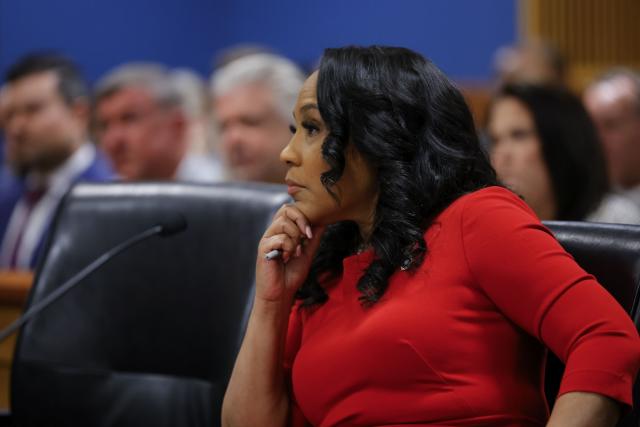Marjorie Taylor Greene Accuses Democrats Of Plotting Donald Trump's Murder In Prison
A prominent lawmaker has accused Democrats of orchestrating a scheme to place a former president in serious danger of harm.
In a controversial interview on Infowars, Rep. Marjorie Taylor Greene (R-GA) voiced her concerns that Democrats intend to put Donald Trump's life at risk by imprisoning him and stripping away his Secret Service detail, as the Daily Mail reports.
Greene's claims involve newly proposed legislation that would impact former government officials convicted of felonies.
The legislation, introduced by Democratic Rep. Bennie Thompson, seeks to alter how protectees' Secret Service protection would be administered in the event of a criminal conviction.
The Disgraced Act: Impact On Former Officials
This legislation, named the Denying Infinite Security and Government Resources Allocated toward Convicted and Extremely Dishonorable Former Protectees Act (DISGRACED Act), would transfer the responsibility for the safety of convicted officials from the Secret Service to prison personnel.
According to Thompson, this change is necessary to ensure fairness in the judicial system and to prevent special treatment in sentencing and jail time.
"Unfortunately, current law doesn't anticipate how Secret Service protection would impact the felony prison sentence of a protectee -- even a former president,” stated Thompson. He emphasized the bill's intention to make legal processes fair to all, adding that those convicted should serve the mandated time without undue advantages.
The DISGRACED Act, supported by eight other Democrats, highlights a significant shift in how convicted former officials might be treated concerning security and incarceration.
Greene's Interpretation of the Legal Threats to Trump
Rep. Greene suggested that the charges Donald Trump is facing, including 34 felony counts related to alleged hush money payments for which he has pled not guilty, are an extension of a broader Democratic strategy.
She argued that these legal challenges are designed to keep him incarcerated until his death, labeling the proceedings as 'rigged' and echoing Trump's characterization of the situation as a 'witch hunt'.
She strongly voiced that the initiatives like the DISGRACED Act are more than legislative changes.
"They want to lock him up in jail for the rest of his life so that he dies in jail," Greene asserted. "And they want to take away his Secret Service protection so that he is murdered somewhere in jail, possibly."
Notably, this is not the first instance Greene has spoken of such claims. Back in February, she took to X (formerly Twitter) to state, "Biden’s DOJ is trying to put [President] Trump in prison for the rest of his life which would be a death sentence."
The Potential Legal Consequences for Trump
If convicted on all counts, Trump faces a potential maximum sentence of 136 years. These are state offenses, making them only pardonable by the Governor of New York, adding another layer of complexity to his legal struggles.
As this situation continues to develop, the intertwined legal and political implications are drawing widespread scrutiny. The dynamics of this case could potentially have long-standing impacts on the treatment of former government officials and the application of the law in high-profile cases.
Amidst these discussions, the question of fairness, protection, and political retaliation remains hotly debated, spotlighting the deeply polarized nature of current American political discourse.
Conclusion: Review of Greene's Allegations and Legislative Changes
To summarize, Rep. Marjorie Taylor Greene has made headlines by claiming that Democrats are plotting to kill Donald Trump by incarcerating him and eliminating his Secret Service protection.
This accompanies the legislative push by Rep. Bennie Thompson with the DISGRACED Act, aimed to revise how convicted former officials are protected.
While these statements and legislative efforts unfold, they contribute to the broader discussion concerning legal equity, political rivalry, and the protection of high-profile figures in legal jeopardy.






